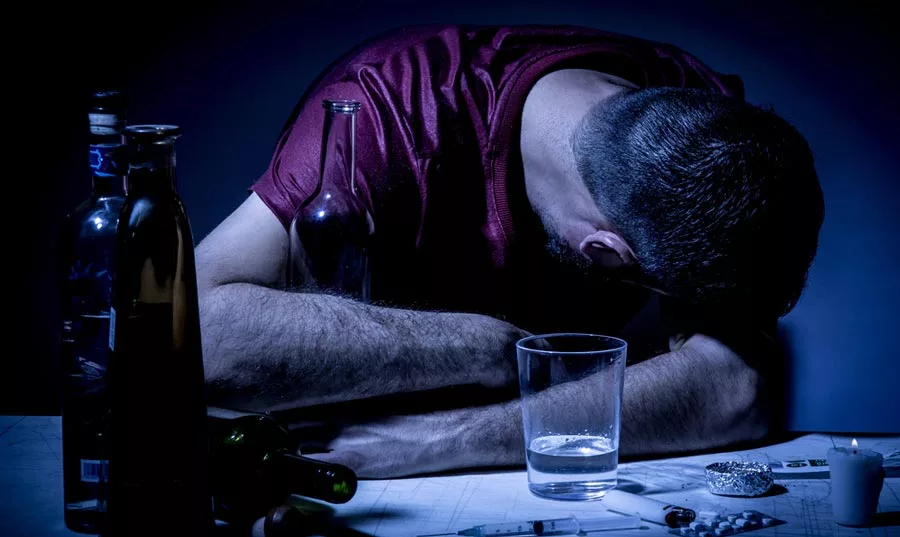Alcohol Detox Orange County
Orange County Detox Rehab and Addiction Treatment Services
No one sets out to become an alcoholic, but it’s easy to find yourself stuck in the cycle without realizing how far you’ve gone until it’s almost too late. Alcohol addiction is a debilitating disorder that affects every area of your life – from physical health to mental wellness, relationships, and financial security.
Alcohol detox Orange County services and treatment facilities can provide much-needed support during this difficult time, allowing individuals to overcome their dependence on alcohol and begin rebuilding themselves as better versions of themselves.
If you or someone you care about lives in Orange County and is struggling with alcohol or drug addiction, getting the right kind of help can be the difference between life and death. With access to some of the best detox rehab centers in the country, Orange County provides a safe space for individuals to get clean and make a fresh start in life.
Keep reading to learn more about alcohol addiction and detox, alcohol and drug rehab in Orange County, and how South Shores Detox and Recovery in Orange County can help you get your life on back and find the road to long-term recovery!
What is Drug and Alcohol Addiction?

Drug and alcohol addiction is a complex and debilitating condition that affects millions of people worldwide. Substance abuse issues can rob individuals of their health, relationships, and sense of purpose, leaving them feeling helpless and alone.
Here are some of the key elements of alcohol and drug addiction:
- Physical Dependence: Addiction often involves the development of physical dependence, where an individual’s body has become accustomed to the presence of a certain substance. If use is then stopped or reduced, withdrawal symptoms may occur, making it even harder for them to stop their usage.
- Physical Side Effects: Physical changes from alcohol such as damage to the face and nose, internal organs, increased heart rate, alterations in appetite, and decreased cognitive abilities are just some of the possible consequences of sustained abuse. Each individual will experience the changes differently.
- Intense Cravings: Cravings for a particular substance can be strong and accompanied by physical and psychological symptoms. Environmental cues, stress, or social pressure may all cause an individual to experience a drug craving, oftentimes resulting in feelings of anxiety, irritability, or restlessness until the drug is used.
- Loss of Control: Addiction can lead to a loss of control over drug or alcohol use, even as the individual continues to use despite negative consequences.
- Compulsive Drug-Seeking Behavior: Drug-seeking behavior is an extreme preoccupation with obtaining drugs, oftentimes causing a person to act in a dangerous or illegal manner like stealing, lying, or manipulating people. They will go to great lengths to get their hands on the drug, even if it means risking their own safety and well-being.
- Mental Health Issues: Addiction has strong ties to mental health issues such as depression, anxiety, or post-traumatic stress disorder (PTSD). People suffering from these conditions may turn to substance use as a form of self-medication to cope with their symptoms, only exacerbating them further down the road if not managed appropriately.
- Tolerance: Over time, individuals with addiction may develop a tolerance to the alcohol, meaning they need more of it to get the same effects.
- Withdrawal: Symptoms of withdrawal occur when the individual stops using alcohol, and can include physical and emotional symptoms.
The cycle of addiction can be difficult to break without proper help and support from loved ones and medical professionals. If you or someone you love is struggling with substance use disorders, it is important to seek help as soon as possible.
24 Hour Alcohol Withdrawal Hotline
Alcohol Withdrawal Symptoms
Alcohol withdrawal can be challenging and uncomfortable for individuals who have developed a physical dependence on alcohol. When individuals who drink heavily on a regular basis suddenly stop drinking, their bodies can go into shock, leading to a range of unpleasant symptoms.
Here are some of the most common symptoms of alcohol withdrawal:
- Tremors
- Headaches
- Insomnia
- Anxiety
- Hallucinations and Delusions
- Seizures
- Delirium Tremens (DTs)
Alcohol withdrawal can be a difficult and uncomfortable experience, but it is important to remember that there is help available.
With medical supervision and support, individuals can manage withdrawal and begin the process of recovery.
What is Drug and Alcohol Detox?

Drug and alcohol detox is the first step in the journey of recovery for individuals struggling with substance use disorders. Detox is the process of allowing the body to rid itself of the toxic substances it has become dependent on and is often accompanied by withdrawal.
Detox can be a difficult and uncomfortable process, but it is also a crucial step toward recovery. By removing the harmful substances from the body, individuals can begin to heal both physically and mentally and start the process of rebuilding their lives.
Here are some key elements of drug and alcohol detox:
Medical Assessment
Prior to beginning a medical detox program, individuals will have an in-depth medical examination to assess their needs and establish the most appropriate course of care. This evaluation considers factors such as an individual’s past medical history, patterns of substance use, as well as any prevailing health issues.
Withdrawal
Symptoms of withdrawal occur as the body adjusts to the absence of the substance it has become dependent on. These symptoms can range from mild to severe and can include physical discomforts, such as headaches, nausea, tremors, fatigue, and seizures in severe cases, as well as emotional symptoms, such as anxiety and depression
Physical Stabilization
Detox is designed to help individuals stabilize physically, as their bodies begin to heal from the effects of addiction. This can include stabilizing vital signs, managing symptoms of withdrawal, and addressing any medical complications that may arise during the detox process or that the individual didn’t take care of during their drug use.
Mental and Emotional Support
Detox can be a difficult and emotional time, and it is important for individuals to have access to mental and emotional support during this period. This can include therapy, counseling, and support from family and loved ones.
Medication-Assisted Addiction Treatment and Detox For Alcohol and Drug Addiction

Completing a drug and alcohol detox program is just the first step in the journey toward recovery from addiction. After detox, it’s crucial to continue at addiction treatment centers or other rehabilitation programs to maintain long-term sobriety and prevent a relapse.
There are a number of different treatment options available, each with its own benefits and drawbacks. The following are some of the most common types of addiction treatment after detox:
Residential Inpatient Treatment Centers
Inpatient treatment programs provide round-the-clock care and support to individuals in recovery. Residential rehab programs typically last 30-90 days and are designed to help individuals transition from detox to a structured recovery environment. Inpatient residential treatment is often recommended for individuals with severe addiction or co-occurring mental health disorders.
Outpatient Treatment Programs
Outpatient treatment centers provide less intensive treatment services than an inpatient alcohol rehab center or an Orange County drug rehab and allow individuals to continue living at home while receiving treatment.
Outpatient programs typically involve regular counseling sessions and support groups and will include a mix of individual and group therapy. Outpatient treatment is often a good choice for individuals with a less severe addiction or a strong support network at home.
We Accept Most Major Insurance Providers – Call Now!
12 Step Programs
12-step programs such as Alcoholics Anonymous (AA) and Narcotics Anonymous (NA) are free, widely available peer-led support groups that can aid individuals in recovery. These programs are based on a set of 12 steps that participants are urged to follow in order to obtain and sustain sobriety. With hundreds to thousands of meetings taking place across Orange County, anyone is able to find a suitable group. These programs can be an invaluable supplement to other forms of treatment for addiction.
Sober Living
Sober living homes offer a safe atmosphere for those in recovery. Residents share housing and must abide by regulations, attend meetings, and engage in counseling to maintain sobriety and begin to reintegrate into society. For individuals who have already completed detox and inpatient treatment, these facilities can be invaluable assets on their journey to recovery.
Individual Therapy

Individual therapy is a type of private counseling meant to address the internal issues that lead to addiction. This treatment can be used in conjunction with other forms of therapy – like group therapy and meditation – and can be an important asset for many individuals in recovery.
Dual Diagnosis Treatment: Mental health Treatment and Substance Abuse Treatment
Dual diagnosis refers to the co-occurrence of a mental health disorder and a substance abuse disorder in the same individual.
Recognizing and treating both a substance abuse disorder and a mental health disorder is critical to achieving lasting recovery. Here are some of the reasons dual diagnosis is so important:
Understanding the root cause
Genetics, trauma, and environmental factors are all potential contributors to the development of addiction. Identifying the underlying factors at play can help individuals and their healthcare providers create custom treatment plans tailored to their specific needs. It is essential for individuals seeking treatment for addiction to determine what influenced the onset of their disorder so they can receive targeted care that will best meet their recovery needs.
When the root cause of an individual’s addiction is trauma, therapy and other treatments that focus on healing that trauma should be part of the rehabilitation plan. Doing so can help ensure successful and sustained recovery from the disorder, as addressing unresolved trauma is essential for a lasting solution.
Improved outcomes
Individuals with dual diagnosis who receive integrated treatment for both their substance abuse and mental health disorders have better outcomes than those who receive treatment for just one condition.
Better management of symptoms and reduced likelihood of relapse
Treatment for both conditions can help individuals manage their symptoms more effectively and reduce the likelihood of relapse. Addressing all issues and developing effective coping strategies provides individuals a solid foundation to achieve lasting recovery.
24 Hour Addiction Treatment – Reach out Now!
Find Effective Alcohol Detox Orange County Services
If you or someone you love is struggling with alcohol or drug addiction, South Shores Detox and Recovery should be your go-to Orange County rehab and detox. Our team of experienced professionals is dedicated to providing compassionate, comprehensive care as well as tailor-made treatment plans that focus on lasting sobriety.
Our addiction treatment programs include medically supervised detoxification, residential treatment, intensive outpatient services, and continuing care plans. The inpatient addiction treatment facility is staffed 24/7 by qualified nurses, physicians, and addiction specialists so you can rest assured that the highest standards of safety are met at all times during your stay.
Contact South Shores Detox and Recovery in Southern California and get started on the road to recovery today… All calls to our facility are confidential, so please reach out in confidence now and get options for yourself or a loved one now!
related pages
- Benzodiazepine Detox
- Opiate And Opioid Detox
- Suboxone Detox
- Behavioral And CBT Therapy
- Dual Diagnosis Disorders
- Mental Health Treatment
- Depression And Mood Disorders
- Alcohol Detox
- Drug Detox Programs
- Addiction Treatment Program
- Mental Health Therapies
- Drug Rehab Orange County
- Drug Rehab Santa Ana
- Couples Rehab Orange County
- Alcohol Rehab Orange County
- Health Net Rehab Center
- Fentanyl Detox
- Dual Diagnosis Treatment Orange County Programs
- Drug Rehab that Accepts TRICARE
- TRICARE Alcohol Rehab
- Alcohol Rehab Santa Ana
- Crack Detox
- Alcohol Detox Orange County
- Heroin Detox
- Medication Assisted Treatment Orange County
- Orange County Drug Detox
